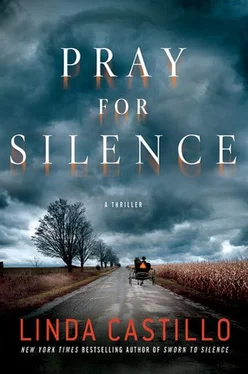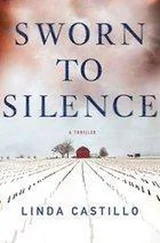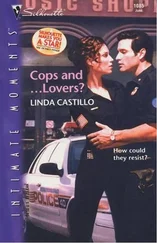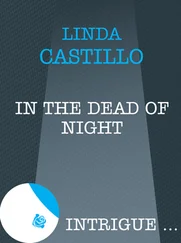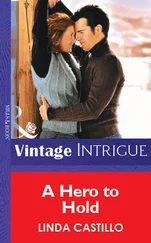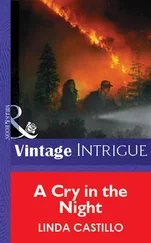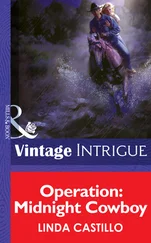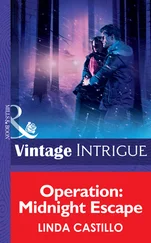“Jesus Christ, Chief.” He steps into the room, his voice little more than a whisper. “What the hell happened?”
Skid is usually pretty laid-back. He’s cocky with a dry sense of humor, a quick wit, and has never been overly sensitive to some of the things cops are forced to deal with. As he takes in the carnage before us, his brash façade falls away. His expression relays the same horror and disbelief I feel burgeoning in my chest.
He moves closer to me.
“Watch for footprints,” I tell him.
His beam illuminates the plank floor, sweeps left and right. As if of its own accord, my beam paints the nearest body with terrible light. Dozens of bruises, contusions and abrasions mar the dead girl’s torso, arms and legs. Small patches of skin are bright red. Other areas are nearly black. At some point, she’d vomited. I can smell the sour stink of it from where I stand.
“I got a footprint,” Skid calls out.
“Mark it.” I don’t take my eyes off the corpse. “Looks like they were tortured.”
“Someone tied them up and just went to fuckin’ town on them,” Skid says after a moment.
He lowers his flashlight and in that instant of light, I notice two small marks on the floor. “Wait,” I say. “What’s that?”
I squat next to the marks. Upon closer inspection, I can see there are actually three of them. They look like scuff marks in a thin layer of dust. If I were to connect them, they’d form a perfect triangle.
“What the fuck?” Skid whispers in a baffled tone.
“Mark them, will you?”
“Sure thing.”
“Keep your eye out for more footprints.”
“You bet.”
I shine my beam around the room. A few feet from where we stand, a propane torch, a small wooden club, a knife smeared with blood, and a foot-long skewer-like instrument sit neatly atop a workbench. Not the kinds of things you’d find in an Amish barn, and I know that whoever did this left them behind. “We might be able to lift some prints off those . . . tools.”
“Yeah.” Skid’s beam joins mine, and he makes a sound of disgust. “How the hell could someone do this? I mean, for chrissake, a couple of Amish girls?”
I have no answers. I have no words at all. For a moment the only sound comes from the stirring of the cows down the aisle and the muted song of the crickets outside.
“You think the father did this?” Skid asks.
I hear doubt in his voice and shake my head because I can’t imagine. “I don’t know.”
He shifts his beam back to the nearest victim. “Were they shot?” he asks. “Stabbed?”
Taking a deep breath, I train my beam on the victim nearest me. I see pale flesh speckled with blood. My beam stops on the black, gaping hole just below her navel.
“What the hell is that?” Skid’s voice comes from behind me.
“Knife wounds?” My voice is steady, but my beam quivers as a tremor of revulsion moves through my body.
“It looks like someone cut her open.”
I move the beam lower. A lot of blood now. Caked in her pubic hair. Dark rivulets that ran down the insides of both legs. I look for evidence of a bullet wound, but see nothing. In the back of my mind I wonder if she was alive when they did this to her.
The thought makes me sick. The terribleness of it frightens me on a level so deep that for a moment I can’t catch my breath. I’ve never been a crier, but I feel the burn of tears at the backs of my eyes.
“Chief? You okay?”
I choke back a sound I don’t recognize. A sound that echoes the barrage of emotions banging around inside me. For a full minute, I don’t respond. When I’m finally able to speak, my voice is level. “Call Glock and Pickles again. Tell them we need those lights and generator yesterday.”
“Yes, ma’am.”
“Tell Mona to notify the sheriff’s office. Let them know what’s going on and get some patrols out. Tell her to brief T.J., get him out patrolling. Until we figure out what happened here, we’ve got to assume there’s a cold-blooded son of a bitch out there with a gun.”
As Skid speaks into his radio, I look at the two dead girls, and I feel the crushing weight of my responsibility to them settle onto my shoulders. I’ve heard veteran cops talk about life-altering cases. Cases that haunt a cop long after they’re closed. I’ve had cases like that myself. Cases that fundamentally changed me. Changed the way I view people. The way I perceive my job as a cop. The way I see myself.
Standing there with the stench of death filling my nostrils, I know this is going to be one of those cases. It’s going to take a toll. Not only on me, but on this town I love and a community that’s already seen more than its share of violence.
CHAPTER 3
I’m standing on the back porch one puff into a Marlboro I bummed from Skid when a police cruiser hauling a small trailer barrels down the lane. Light bar and siren blaring, it slides to a halt behind my Explorer, stirring a cloud of dust that alternately glows blue and red, lending yet another layer of surreality to an already surreal scene.
Rupert “Glock” Maddox gets out of the car and goes around to the trailer, opens dual rear doors and pulls down a small ramp. A former Marine, Glock has the dubious honor of being Painters Mill’s first African-American police officer. He’s built like a young Arnold Schwarzenegger, can shoot the hair off a groundhog, and is one of the best cops I’ve ever had the pleasure of working with. As I start toward him, I hope his levelheadedness will balance out the jagged emotions roiling inside me.
He rolls a portable, diesel-powered generator down the trailer ramp, then watches me approach. Under normal circumstances, he’d probably give me a hard time about smoking. I might have tried to hide the evidence if I hadn’t been standing in the midst of a crime scene. I figure both of us are too distracted by what we face in the coming hours to bother with something so mundane.
“Must be bad if you’re smoking,” he says.
“It’s bad.” The words feel like an obscene understatement.
“I would have been here faster, but I had to pick up the generator and lights.”
“It’s okay.” A sigh shudders out of me. “None of these people are going anywhere.”
“You get the shooter?”
“I’m not exactly sure what we’re dealing with yet.”
He looks at me a little too closely as I drop the butt on the gravel and crush it out with my boot.
“Could be a murder-suicide,” I clarify.
“Shit.”
I motion toward the generator. “Get some lights set up, will you?” I start toward Skid’s cruiser. “I’m going to talk to the witness.”
I’ve met Reuben Zimmerman several times over the years. He’s a quiet, serious man, one of the few Amish I know who does not have children. He and his wife, Martha, own a small house on a couple of acres down the road. Reuben is a retired carpenter and spends most of his time building decorative birdhouses and mailboxes for the Amish tourist shops in town.
I open the back door of the cruiser and bend slightly to make eye contact with him. Zimmerman leans forward and looks at me. “Did you find Bonnie and the other children?” he asks.
Though Skid had only been following departmental procedure, I’m dismayed to see the Amish man’s hands cuffed behind his back. I pull the key out of my belt. “Turn around, and I’ll take those off for you.” I speak to him in Pennsylvania Dutch, hoping it will help break down the barrier of mistrust that exists between the Amish and the English police. This morning, I need his full cooperation.
Turning, he offers his wrists. I insert the key and the handcuffs snick open. “What are you doing here at this hour?”
He rubs his wrists. “I help with the milking.”
Читать дальше
